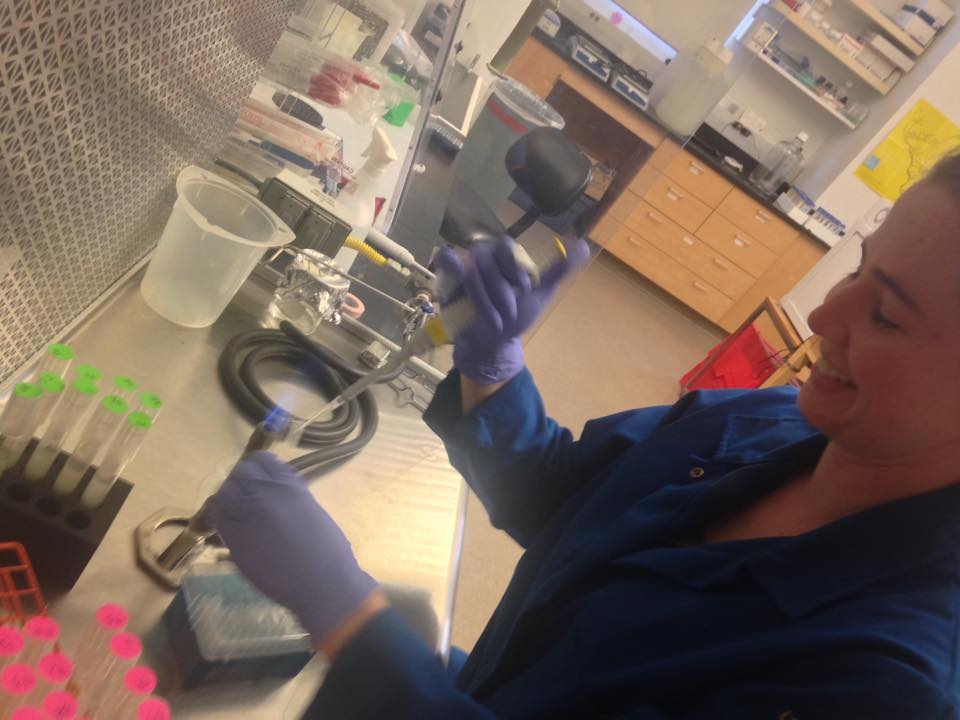Alyssa G. Kent
Biogeography of Prochlorococcus Genome DiversityProchlorococcus is the smallest known photosynthetic bacterium and it is abundant in the ocean's photic zone despite environmental variation. Genetic variation and gene gain and loss in the evolutionary history of this organism may have been shaped by its adaptation to environmental selective pressures. We observed a significant relationship between phylogenetic and gene content diversity. We also found a set of genes related to lower nutrient and lower temperature regions. Overall, our results show that the phylogeography in Prochlorococcus taxonomy is echoed in its genome content.
|
Experimental Evolution to High Temperature of a Roseobacter lineageOcean temperatures are on the rise and microbes play a significant role in biogeochemical cycles. How will ocean changes affect these microbes? Here we evolved a member of the Roseobacter clade to high temperature to compare the genetic and physiological changes. Several different genetic modifications allowed them to increase biofilm formation. We hypothesize that this is to deal with increased oxygen stress.
|
Microdiversity of ProchlorococcusDoes fine-scale microdiversity within a single clade of Prochlorococcus have biogeography? What role does environmental selection play on this observed diversity? We are answering these questions by deeply sequencing a single marker gene across several ocean cruises to look at how environmental parameters like light, temperature, nutrients play a role in the distribution of genetic diversity of this organism.
|


